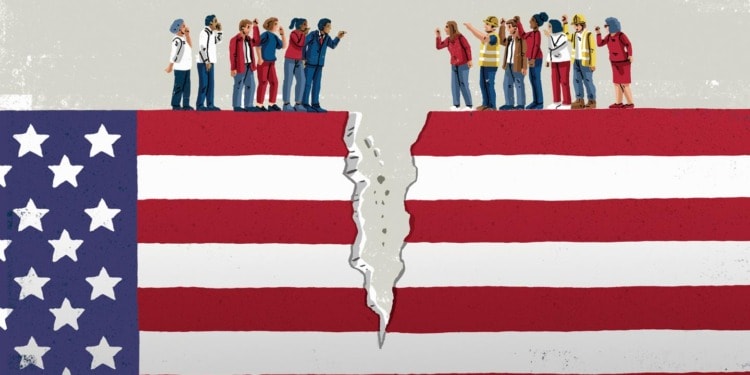I have been a measured lifelong optimist, but that is being deeply challenged not just by what is happening or will happen in the US but also in Europe and beyond.
The United States
The degree to which institutions have lost trust exceeds anything I have known in a lifetime. It has been further damaged by the US Supreme Court decision that a former president is shielded from criminal liability for “official acts” taken while in the White House — meaning, as Justice Sotomayor put it, the president has been elevated to King: “this new official act of immunity now lies about like a loaded weapon for any President…”.
The Court has overturned a longstanding principle established in 1984 in Chevron U.S.A. Inc. v. Natural Resources Defense Council Inc. This principle held that courts should defer to a federal agency’s interpretation of its own regulations. The Court’s decision in this landmark case has significant implications for the future of federal and state tax guidance, as it blocked EPA’s “Good Neighbor” pollution plan, a decision that endangers efforts to protect the environment in addressing pollution and climate change.
The Chevron decision will further weaken the extensive regulatory system of the US federal government.
All this will accelerate the weakening of federal rules should Trump be elected, as increasingly seems likely. Even should Trump lose, the election outcome will be challenged to the point of bringing us to near or virtual civil war.
In other words, a Trump victory will likely undermine our standing with long-held US partnerships, and undermine our commitments to international institutions. The damage to be done will match or exceed that of the domestic effects of the proposed policies.
I fervently wish I could envision either a new Democratic Presidential candidate or, as a backup, a win for Joe Biden. But so far I can’t.
Europe
France’s movement to the right as evidenced by Marine Le Pen’s National Rally party winning in the first round of elections this past Sunday, alongside Hungary’s persistent populist-nationalist policies and the growing strength of the Alternative right in Germany, and possibly others drifting to the right in Western Europe will have repercussions beyond the internal effect in each country.
All this will translate into weakened support for both EU institutions and Ukraine and warming toward Putin.
Going one step further, it is not inconceivable that this could lead to NATO collapsing, a disaster unlikely to be rescued by a Trump administration.
But the damage goes further: There will be the impact on European financial relations, with the better-off countries less willing to continue underwriting those with heavy deficits.
Related Articles: Bleak Outlook for UN’s Sustainable Development Goals | A (Non) Modest Proposal for the G20: A Sustainable World Commission to Achieve the SDGs | All SDGs ‘Seriously Off Track,’ UN Report Finds | A Short History Of The SDGs | Maximizing Progress on the 2030 Agenda
By the end of 2023, while the Euro area gross debt to GDP ratio stood at 88.6%, which is a reasonably healthy level, it is still true that five EU countries recorded debt-to-GDP ratios are a matter of continuing concern as they hover well above 100%: Greece at a whopping 161.9%, Italy at 137.3%, followed by France at 110.6% and Belgium at 105.2%.
Such levels are extremely high even if the U.S. itself, with a debt-to-GDP ratio of 129%, is now in that league of highly indebted countries. But the American dollar is still the world’s top reserve currency and thus maintains a strong position despite its rising debt. The situation for the Euro is different. It has not yet risen to the level of a major reserve currency like the dollar, and it might never do so. Hence, it now potentially faces a heightened risk of meltdown. And if that were to happen, how long would the European Union survive?
Elsewhere
The Middle East is on fire, with the current limited Gaza War having no end in sight, a new war expanding to Lebanon, which could then pull Iran in the mix.
The Western Hemisphere is fraught with trouble or potential trouble, whether Haiti, Venezuela, Ecuador, Bolivia, Brazil and there are others. Then there is the impact of the likely worst hurricane pattern in history, with Caribbean Island States likely to suffer big time.
South China Sea tensions continue to boil, involving China, the Philippines, Taiwan, and Vietnam. Meanwhile, North Korea regularly threatens its neighbors with its missiles and nuclear capability. South Asia is not faring any better, with Pakistan-India continuing tensions and in the Himalayas, the ongoing Sino-Indian dispute. With both sides militarized along an undetermined border, it shows no signs of final resolution.
That said, the sun will rise tomorrow, human “not-so-kind” has been on the precipice before and managed to survive. Let’s hope…
Editor’s Note: The opinions expressed here by the authors are their own, not those of Impakter.com — In the Featured Photo: UN SDGs flag. Featured Photo Credit: Eva Bee/CC BY-NC.













